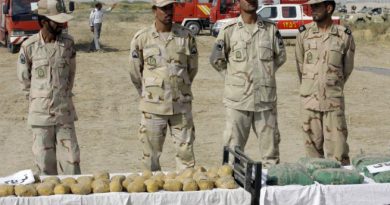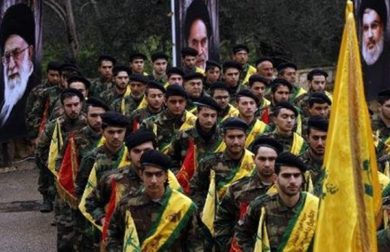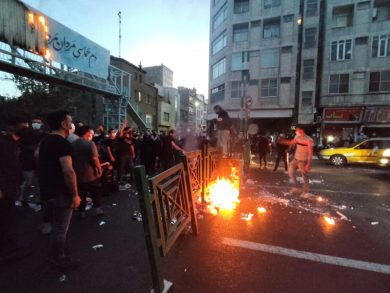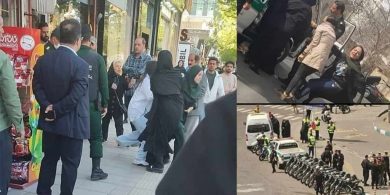The Islamic Revolutionary Guard Corps (IRGC) is one of the world’s most powerful and dangerous state-affiliated military organizations. For over four decades, it has built an empire of repression inside Iran and a web of destabilization beyond its borders—supporting terrorist proxies, suppressing dissent, and orchestrating assassination plots abroad. And yet, despite its record of human rights abuses, terror financing, and global aggression, the IRGC remains partially protected by international loopholes, complacency, and diplomatic silence.
While courageous Iranians pay with blood, prison, and exile, much of the world continues to do business with IRGC-linked companies, allow its commanders to move money through financial systems, and resist the calls to formally designate the organization as a terrorist group.
This article examines how Western governments, corporations, and institutions—intentionally or inadvertently—enable the IRGC’s power through legal gaps, economic interests, political calculations, and diplomatic inertia. Understanding these enablers is crucial not only to confronting the IRGC, but to aligning global policies with human rights and justice.
1. What Is the IRGC and Why Does It Matter?
Founded after the 1979 Islamic Revolution, the IRGC is a paramilitary force tasked with protecting the regime from internal and external threats. Over time, it has evolved into:
• A parallel military rivaling the regular army
• The controller of Iran’s ballistic missile and nuclear programs
• A dominant economic player through hundreds of front companies
• An intelligence agency with global surveillance capabilities
• A transnational terror sponsor, particularly through its Quds Force
The IRGC is responsible for:
• Mass repression of protests (e.g. 2009, 2017, 2019, 2022)
• Torture, rape, and executions of political prisoners
• Targeted assassinations abroad
• Support for Hezbollah, Hamas, Palestinian Islamic Jihad, Houthis, and militias in Iraq and Syria
Yet despite this record, it remains insufficiently sanctioned, under-designated, and dangerously normalized.
2. The Illusion of Containment: How Partial Sanctions Fall Short
U.S. Exception or Global Standard?
The United States designated the IRGC as a Foreign Terrorist Organization (FTO) in 2019—making it the only branch of a foreign military with such a designation. This allows for:
• Criminal prosecution of anyone who provides material support
• Asset freezes and visa bans
• Civil suits by victims of IRGC-sponsored terrorism
However, most of the world has not followed suit.
Europe:
• The EU sanctions the Quds Force (IRGC’s external operations unit), but not the full IRGC
• IRGC-affiliated individuals face asset freezes, but not institutional isolation
• IRGC front companies operate freely in sectors like shipping, construction, and oil
Canada:
• Has sanctioned individual IRGC commanders
• But has not placed the IRGC on its terrorist list, despite calls from Parliament and the public
UK:
• Sanctions some IRGC-linked entities
• Has not officially designated the IRGC as a terrorist organization
This patchwork of partial measures allows the IRGC to shift tactics, rename companies, and adapt—undermining accountability.
3. Economic Loopholes: Profiting from Repression
The IRGC controls 30–40% of Iran’s economy through:
• Construction conglomerates (e.g. Khatam al-Anbiya)
• Telecom giants (e.g. MobinNet)
• Banks and financial institutions
• Oil, gas, and petrochemical companies
How the West Enables It:
A. Front Companies
• IRGC firms frequently rename or restructure to evade sanctions
• Western banks and corporations often fail to perform due diligence
• Many engage in business with firms “technically” unaffiliated but functionally controlled by the IRGC
B. Dual-Use Technology
• Western tech—especially surveillance, cybersecurity, and telecommunications—has been used by IRGC units to monitor dissidents
• Export controls are often ignored or circumvented via intermediaries in Turkey, UAE, and Malaysia
C. Lax Enforcement
• Even when sanctions exist, enforcement is weak
• Banks that violate sanctions often pay fines rather than face prosecution
• Some governments prioritize diplomatic re-engagement over human rights enforcement
4. Diplomatic Silence: Choosing Stability Over Justice
Despite mass uprisings in Iran and mounting evidence of atrocities, many governments choose quiet diplomacy over meaningful confrontation.
Examples:
• European states have invited Iranian officials to summits and trade expos—even after protest crackdowns
• The UN has allowed IRGC-linked officials to attend conferences and forums without accountability
• No international tribunal or commission has been created to investigate the IRGC’s crimes
Diplomatic silence serves as tacit approval—and emboldens the IRGC.
5. The Nuclear Negotiation Trap
The revival of the Joint Comprehensive Plan of Action (JCPOA) has further complicated international action.
The Problem:
• Many Western governments fear that IRGC designation or additional sanctions would derail nuclear negotiations
• As a result, they avoid confrontation to preserve diplomatic channels
Consequence:
• The IRGC uses the threat of nuclear escalation to shield itself from broader accountability
• Iranian citizens become collateral in geopolitical calculations
This dynamic trades justice for short-term diplomacy.
6. Soft Power and Cultural Whitewashing
The IRGC also benefits from global institutions that grant legitimacy through cultural exchange, investment, and academia.
Examples:
• European museums hosting exhibitions sponsored by IRGC-linked foundations
• Western universities partnering with Iranian institutions connected to IRGC research
• Cultural festivals and embassies whitewashing regime ideology under the guise of “dialogue”
This normalization masks the regime’s violence and rehabilitates its public image.
7. The Role of the Diaspora: Voices Ignored or Targeted
Exiled Iranian journalists, artists, and human rights advocates have worked tirelessly to expose the IRGC.
Challenges They Face:
• Intimidation by IRGC proxies abroad
• Surveillance and smear campaigns
• Indifference or censorship by mainstream Western media
• Lack of legal protection or funding for anti-IRGC advocacy
When the world ignores these voices, it disempowers the resistance and strengthens the regime.
8. Case Studies in Enabling Behavior
A. Germany
• Germany has resisted IRGC designation despite evidence of IRGC-linked plots on its soil
• German companies have engaged in trade with IRGC-tied firms, especially in the chemical and engineering sectors
B. Austria
• Hosted IRGC diplomats under full immunity
• Did not act decisively after the 2018 Paris bomb plot involving Vienna-based diplomat Assadollah Assadi
C. Turkey and the UAE
• Act as financial and logistics hubs for IRGC front companies
• Despite being allies of the West, they facilitate IRGC commerce through offshore networks
These examples highlight a global ecosystem of complicity.
9. What a Responsible International Policy Looks Like
To break the IRGC’s power, governments and institutions must act decisively.
Steps That Must Be Taken:
1. Full IRGC Terrorist Designation
• Apply the FTO label across the EU, UK, and Canada
• Criminalize material support, freeze assets, and ban travel
2. Close Economic Loopholes
• Monitor shell companies and enforce secondary sanctions
• Expand transparency regulations for international finance
• Penalize banks and firms that ignore due diligence
3. Protect the Diaspora
• Offer asylum, legal assistance, and security support to targeted activists
• Crack down on IRGC-linked surveillance and intimidation abroad
4. Fund Civil Society
• Provide resources for independent Iranian media and human rights groups
• Support digital security tools and censorship circumvention technologies
5. Hold the Regime Accountable
• Create a UN special tribunal or commission on IRGC crimes
• Use universal jurisdiction to prosecute torture and extrajudicial killings
• Demand accountability in every diplomatic engagement
Conclusion: Silence Is Complicity
The world has a choice.
It can continue to tolerate, negotiate with, and enrich the IRGC—allowing it to grow bolder, more brutal, and more global.
Or it can recognize that the IRGC is not just an Iranian problem—it is an international threat, undermining peace, justice, and democracy far beyond Iran’s borders.
Join Our Newsletter!
Stay informed with the latest updates, news, and ways to take action in the fight for justice and global security. Sign up now to get updates delivered straight to your inbox!





